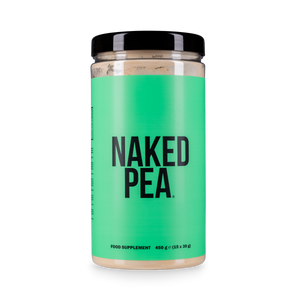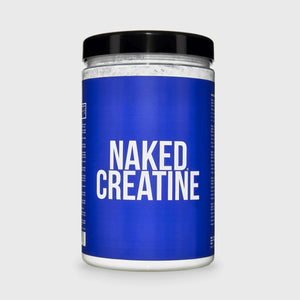A common belief is that weight gain in our later years is due to a slowing metabolism. But does metabolism slow with age, or is there more to this story?
The science of metabolism may be more complex than simply attributing difficulty with weight loss to a slow metabolic rate.
This article will explore the science behind metabolism, the factors that influence it, and how we can maintain a healthy metabolic rate throughout our lives.
What Exactly is Metabolism?

Metabolism is the process that describes the speed at which our bodies utilize food for energy.
Specifically, metabolism refers to the chemical processes your body uses to convert food into energy.
The energy derived from our food fuels everything from your heartbeat, breath, and daily movements. Our body's energy can be divided into Basal Metabolic Rate (BMR) and Activity Energy Expenditure.
Basal metabolic rate refers to the energy that our body utilizes to perform involuntary body functions like circulation and cell repair. Basal metabolic rate is the energy that we burn at rest.
On the other hand, activity energy expenditure refers to the energy we burn through physical activity such as walking, cleaning your apartment, or intentional exercise.
Factors That Influence Your Metabolic Rate

Metabolic rate is influenced by various factors including genetics, age, and body composition. Hormonal health and digestive health can also play a role in metabolic rate.
The following sections outline the various elements that determine your metabolic rate, along with key details of how these elements affect metabolism.
Genetics
Genetics can play a large role in how fast or slow your metabolism is. While there are actions anyone can take to help improve their metabolic health, there are some aspects of metabolism that are genetically programmed.
According to research published in the journal Nature Metabolism, genetic factors may account for up to 25% of the variation in metabolic rates between individuals Harvard Health Publishing, 2023.
Muscle Mass and Physical Activity

It's well-documented that individuals with higher muscle mass burn more calories at rest. According to the Mayo Clinic, muscle tissue burns approximately three times more calories than fat tissue at rest Mayo Clinic, 2023. Therefore, if someone has a body composition with a high muscle-to-fat ratio, it's likely their metabolic rate will be faster than someone with a lower muscle-to-fat ratio.
Physical activity significantly impacts metabolism as well. The more active you are, the more calories your body burns.
Resistance exercise in particular has lasting effects on metabolism beyond just the calories burned during exercise. Research published in the International Journal of Exercise Science suggests that metabolic rate can remain elevated for up to 72 hours after an intense strength training session International Journal of Exercise Science, 2021.
Hormonal Changes That Affect Metabolism
Hormonal health plays a significant role in metabolic function. Changes in hormones, specifically thyroid hormones (T3 and T4), directly influence metabolism by regulating how quickly the body converts food into energy.
Stress hormones such as cortisol can also directly impact metabolism, interfering with the normal energy conversion process. According to Johns Hopkins Medicine, elevated cortisol levels can slow metabolism and increase fat storage, particularly around the abdominal area Johns Hopkins Medicine, 2022.
Does Metabolism Slow With Age? The Scientific Answer

In short, the answer is yes, metabolism does really slow as we age. However, recent research has challenged some common assumptions about when and how quickly these changes occur.
A groundbreaking 2021 study published in Science analyzed data from over 6,400 people aged 8 days to 95 years and found that metabolism remains relatively stable from ages 20 to 60, after which it declines by about 0.7% per year Science, 2021.
Metabolism tends to slow as we age for three main reasons: reductions in muscle mass, hormonal changes, and lifestyle factors.
How Age-Related Muscle Loss Affects Metabolism
As we age, the body experiences sarcopenia, which refers to the natural loss in muscle mass. This process typically accelerates after age 30, with adults losing approximately 3-8% of muscle mass per decade.
When the body is at rest, muscle tissue burns more energy than fat tissue. Therefore, when we have less muscle mass, our metabolism tends to slow down. This creates a cycle where reduced activity leads to muscle loss, which further slows metabolism.
Age-Related Hormonal Changes Impact Metabolic Rate
Hormones change significantly as we age, which directly influences metabolism. Sex hormones like testosterone and estrogen typically decrease with age, leading to reduced muscle mass and a slower metabolic rate.
According to the Endocrine Society, women may experience up to a 15% reduction in basal metabolic rate during and after menopause due to hormonal changes Endocrine Society, 2022.
Lifestyle Factors That Contribute to Slowed Metabolism
Many people become less active when they get older for various reasons. Whether they're busy with work, taking care of family members, or experiencing health issues, it's common for physical activity to take a back seat.
However, reduced physical activity lowers calorie expenditure and can lead to weight gain. According to the CDC, only 28-34% of adults aged 65-74 are physically active, compared to approximately 40-43% of adults aged 18-44 CDC, 2023.
How to Maintain a Healthy Metabolism As You Age

While it's impossible to completely avoid the natural decline in metabolism that comes with aging, there are evidence-based strategies to help keep your metabolism as active as possible.
Strength Training to Preserve Muscle Mass
Engaging in regular strength training can both help preserve and build new muscle tissue. Research from the American College of Sports Medicine shows that adults who participate in resistance training 2-3 times per week can increase their resting metabolic rate by up to 7% ACSM, 2022.
The CDC recommends muscle-strengthening activities at least twice weekly, targeting all major muscle groups CDC, 2023.
Protein Intake for Metabolic Health
Protein is crucial for metabolic health. Consuming enough protein is necessary to preserve muscle mass as you age. Protein provides the amino acids needed to repair and build muscle tissues.
According to the American Journal of Clinical Nutrition, adults over 40 may benefit from consuming 1.0-1.2 grams of protein per kilogram of body weight daily to maintain muscle mass, compared to the standard recommendation of 0.8 g/kg American Journal of Clinical Nutrition, 2022.
Energy Balance for Muscle Maintenance

While protein intake is vital for muscle health and metabolism, it's equally important to ensure you're consuming enough total calories to support your body's needs.
Building muscle is an anabolic process, meaning muscle is being built and therefore requires energy to do so. It's a common misconception that people need to cut calories to speed up metabolism and get toned. Rather, it's important to understand your energy needs and ensure you're giving your body enough fuel to build new muscle tissue, according to research published in the Journal of the International Society of Sports Nutrition JISSN, 2020.
Sleep, Hydration, and Stress Management
Ensuring adequate, good quality sleep is vital to many aspects of health, including metabolism. Poor sleep has been associated with hormonal imbalances that can slow metabolism and lead to weight gain. According to the Sleep Foundation, adults should aim for 7-9 hours of quality sleep each night Sleep Foundation, 2023.
Hydration is essential for all metabolic processes. Research from the Journal of Clinical Endocrinology & Metabolism suggests that even mild dehydration can reduce metabolic rate by up to 3% JCEM, 2021.
Managing stress is also crucial for metabolic health. Chronic stress increases cortisol levels, which can promote fat storage and slow metabolism. Incorporate stress-reduction techniques like meditation, yoga, and regular relaxation into your routine.
Disclaimer: Always consult your healthcare provider before starting new exercise or nutrition routines, especially if you have underlying health conditions.
Summary: How to Support Your Metabolism as You Age

The question "does metabolism slow with age?" has a nuanced answer. While some metabolic decline is natural, its extent and impact are largely within our control. Here are the key takeaways:
- Yes, metabolism does slow with age – primarily due to muscle loss, hormonal changes, and decreased activity levels
- Muscle tissue burns approximately 3x more calories than fat at rest, making muscle preservation crucial
- Regular strength training (2-3 times weekly) can increase resting metabolic rate by up to 7%
- Protein needs increase with age – aim for 1.0-1.2g per kg of body weight daily
- Adequate calorie intake is necessary for muscle maintenance and growth
- Quality sleep (7-9 hours), proper hydration, and stress management all support optimal metabolic function
By understanding the factors that influence metabolism, everyone has the ability to take practical steps to stay healthy, energized, and metabolically strong at any age.
Also Read:
How to Gain Weight With a Fast Metabolism





